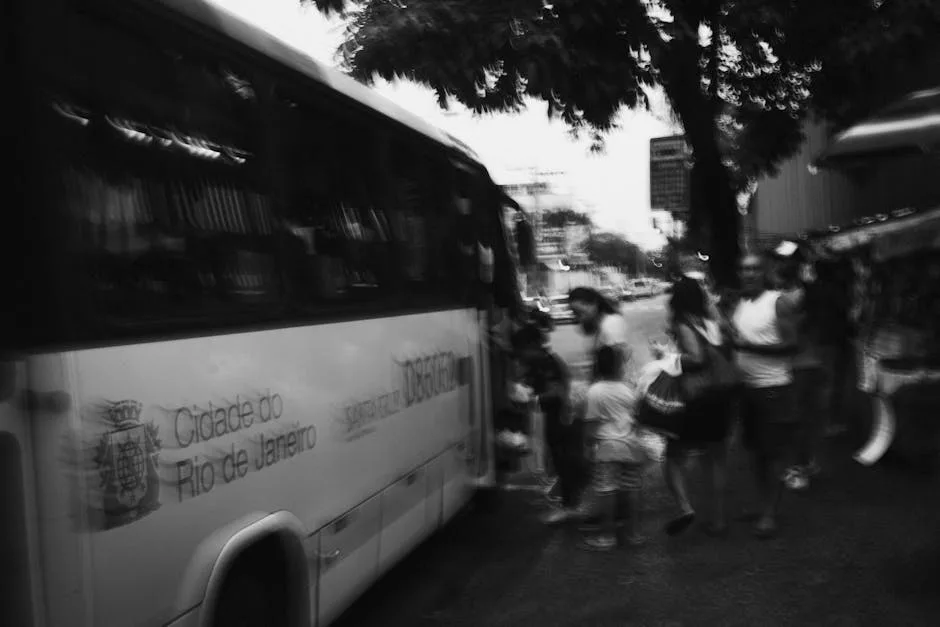Daily Commuting in Brazil
Commuting within Brazil presents a unique experience marked by diverse modes of transport and distinct cultural norms. Major cities, such as São Paulo and Rio de Janeiro, offer extensive public transportation systems, which include buses, metros, and rideshare services. Each of these options caters to different commuter needs and preferences. The bus system is particularly widespread, acting as a lifeline for many locals, while the metro provides a faster alternative for navigating dense urban areas, especially during rush hours.
Peak commuting times in Brazil often coincide with the standard working hours, typically from 7 AM to 9 AM and 5 PM to 7 PM. During these periods, commuters should be prepared for overcrowding and delays, which are frequently exacerbated by traffic congestion inherent in larger cities. Locals often plan their journeys accordingly, opting to leave earlier or later to avoid the rush. For those who prefer using rideshares, platforms like Uber and 99 have gained popularity due to their convenience and flexibility, making commuting more manageable for many.
Cultural norms play a significant role in how Brazilians navigate their public transportation systems. It is common for people to greet one another or engage in light conversation, although this can differ based on the city or region. Foreigners may notice that personal space is often minimized, particularly in crowded settings like buses and metros. To adapt to these commuting practices effectively, newcomers should familiarize themselves with the local transport schedules, use navigation apps to assist with planning routes, and stay attentive to the dynamics of social interactions during their journeys. Understanding these aspects can foster a more seamless commuting experience while navigating Brazil’s bustling urban landscape.
Work Culture and Professional Life
Understanding the work culture and professional environment in Brazil is essential for any foreigner looking to establish a career in the country. Typically, the Brazilian workweek spans from Monday to Friday, with standard work hours generally ranging from 8 am to 5 pm or 9 am to 6 pm. However, this can vary significantly, especially in urban areas where longer working hours may be common due to the fast-paced job market. In contrast, rural environments often emphasize a more relaxed timetable, reflecting the slower pace of life outside major cities.
The significance of workplace relationships in Brazil cannot be overstated. Brazilians often place a high value on personal connections, which can influence hiring decisions and professional advancement. Networking plays a crucial role in building these connections, as many job opportunities arise from word-of-mouth referrals rather than formal advertisements. Foreign professionals are encouraged to engage in social gatherings and industry events to establish rapport and enhance their professional network. Integration into local business culture can also be facilitated through informal interactions, which are an integral part of Brazilian workplace dynamics.
Work-life balance is another critical aspect of Brazilian professional life. While dedication to work is valued, Brazilians typically prioritize personal relationships and leisure time, which can be observed in the importance placed on discussions about family and social life during work hours. Additionally, communication styles in the workplace tend to be more informal compared to many Western countries, often characterized by a warm and friendly demeanor. Foreigners may need to adapt their communication style to align with local customs, which could include using a more personal touch when engaging with colleagues. Understanding these cultural nuances will be vital for anyone looking to navigate the Brazilian work environment successfully.
The Role of Family, Friends, and Social Gatherings
In Brazilian culture, the importance of family and friendships cannot be overstated. Family serves as a foundation of support and social structure, influencing nearly every aspect of day-to-day life. In Brazil, relationships often extend beyond immediate family to include close friends, reflecting a deep sense of community. This interconnectedness is visible in various social customs, particularly during meals, celebrations, and gatherings.
Meals in Brazil are often communal experiences where family and friends come together to share food, laughter, and stories. Traditional dishes, rich in flavor and history, are served during these gatherings, highlighting the cultural diversity found within the country. For instance, the iconic Feijoada, a hearty black bean stew with pork, is typically enjoyed on weekends, bringing family members and friends together in celebration. This custom not only reveals culinary preferences but also illustrates the significance of shared experiences in Brazilian society.
In addition to regular meals, festivals and cultural events play a crucial role in fostering social connections. Major celebrations, such as Carnival or Festa Junina, showcase vibrant traditions filled with music, dance, and regional foods. These events provide opportunities for foreigners to engage with the local culture, develop friendships, and gain a deeper understanding of Brazilian life. Participating in such festivities can be a valuable way for newcomers to form bonds and integrate into the community.
Moreover, social gatherings often extend into everyday life, where casual get-togethers over coffee or barbecues are common. These interactions help cultivate relationships, nurture social networks, and reinforce cultural values. In conclusion, understanding the pivotal role of family, friends, and social gatherings is essential for foreigners wishing to enrich their experiences in Brazil and foster meaningful connections within the community.
Everyday Curiosities: Hygiene, Holidays, and More
Living in Brazil presents a myriad of unique experiences that blend rich traditions with modern conveniences. One of the first aspects that may catch the attention of foreign visitors is the local approach to hygiene. Brazilians often prioritize cleanliness, influenced by both cultural beliefs and social norms. For instance, public places typically observe regular cleaning schedules, and personal hygiene is considered a reflection of self-respect. Brazilians are accustomed to carrying personal hygiene items, such as hand sanitizers and tissue, especially in urban areas where access to facilities may be limited.
Holidays in Brazil are a celebration of the country’s diverse cultural heritage, making them an essential aspect of daily life. Notably, Carnival stands out as a pre-Lenten celebration known worldwide for its vibrant parades and lively samba music. Foreigners can expect to witness a fusion of religious and folkloric elements, as many holidays incorporate both Christian and indigenous traditions. For instance, Festas Juninas, celebrating rural life, takes place in June with dance, food, and folklore, while the New Year is marked with coastal celebrations and fireworks. Visitors are welcomed to partake in these festivities, with ample opportunities to engage in local customs and share in the communal spirit.
Additionally, several myths and misconceptions surround living in Brazil. For example, some people might worry about safety in Brazilian urban areas. While it’s essential to stay informed and exercise caution, the majority of urban dwellers are friendly and hospitable. Adapting to the local pace of life can also be a surprising adjustment for newcomers, as things may not always operate on strict time schedules. Understanding that cultural differences impact everyday life will help foreigners to navigate their experiences more comfortably while savoring the rich tapestry of Brazilian life.





